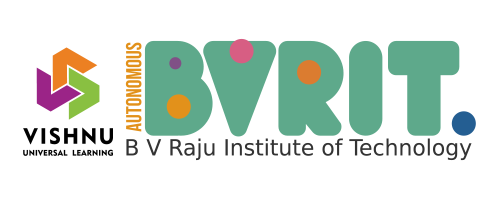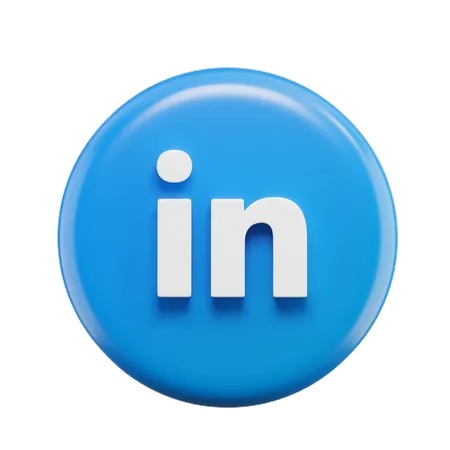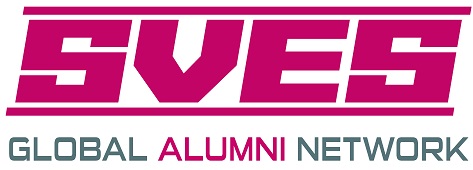B.Tech in Mechanical Engineering is an NBA Accredited Program under Tier-I
Overview.
Why Mechanical Engineering?
Testimonials
About Department
The department of Mechanical Engineering was established at B. V. Raju Institute of Technology (BVRIT) in the year 2009 with an intake of 60 students. M.Tech in Engineering Design started in the year 2014 with an annual intake of 18 students.
The Mechanical Engineering department at BVRIT is well equipped and has amenities with the latest state-of-the-art laboratories and is manned by highly qualified & experienced faculty members. The students are trained in the latest versions of mechanical software packages like AutoCAD, ANSYS, Solid Works, Solid Edge, FEMAP, Pro/ENGINEER 4.0, Master CAM, FLUENTetc. There are also special-purpose machines like CNC Lathe and CNC Milling.
The department of Mechanical Engineering has experienced faculty in the areas of Design, Thermal, Production, and Industrial engineering, i.e., the major areas of Mechanical Engineering. They have published a good number of research papers in refereed International / National Journals and International / National Conferences. Faculty published papers in peer-reviewed international journals such as ASME (American Society of Mechanical Engineers) Journal of Heat Transfer, International Journal of Heat and Mass Transfer (Elsevier, UK), an International JETEAS Journal the UK, and International ARPN Journal, etc.
A major effort of the department is directed towards the creation of an intellectual environment in which undergraduate students can develop to their maximum potentials. Faculty members encourage undergraduate students to participate in both fundamental and applied research. Students have excellent opportunities to participate actively in the classroom and laboratories and to follow special interests within a subject area. Hence we provide students with the foundational skills needed to understand, exploit, and enhance the mechanical behavior of advanced engineering devices and systems, and to make creative contributions at the forefront of the field.
The department has adopted the latest teaching-learning processes like e-learning, google apps, PowerPoint presentations, seminars, industrial visits, expert Lectures from Industry and academia Personnel, etc. We take special efforts to reduce the gap between Industry & Institute by arranging internships during semester breaks or summer in companies such as Nissan Ashok Leyland, BHEL, Visakhapatnam Steel plant, NTPC, Bakelite Hylam, ONGC, Research Centre Imarat (RCI), Ordinance Factory, Sundaram Clayton Limited, Schneider Electric, Anjani Portland Cements, SAMKRG Pistons, NATCO Pharma and Aurobindo Pharma Limited, etc.
The department is encouraging the students to participate in workshops and conferences to exchange the latest technologies among students. The students are presented technical papers in reputed institutes like IITs, NITS, BHU, BITS Pilani, and won prizes in IIT Madras, BITS Pilani, and BHU, Varanasi. Mechanical engineering students developed Electric cars and presently working on hybrid cars, All-terrain vehicles, Solar operated golf carts. Also, the Department of Mechanical Engineering started the BVRIT SAE (society of automotive engineers) INDIA student chapter with 108 members in the year 2011.
2
Program offered
20
Faculty members
1000+
Students graduated
500
Research papers
Programs Offered
B.Tech in Mechanical Engineering
60
Intake
M.Tech in Engineering design
12
Intake
VISION
The Mechanical Engineering Department strives to be recognized globally for outstanding education and research leading to well-qualified engineers as well as managers who are innovative/creative, entrepreneurial, and successful in advanced fields of engineering and research to take up social responsibilities with ethics.
MISSION
M1 To provide innovative technology solutions to solve a wide range of complex scientific, technological, and social problems in the Mechanical Engineering field.
M2 To provide opportunities supported by continuous industry-institute interaction aimed at promoting employability, entrepreneurship, leadership, and research aptitude among students.
M3 To prepare the students who are psychologically strong and emotionally balanced imbibed with social consciousness and ethical values.
Program Educational Objectives (PEOs)
PEO 1: To nurture the students with profound basic theoretical knowledge along with practical skills in the core area of Mechanical Engineering viz. Design, Manufacturing, Thermal, Industrial Engineering and Management along with modern analytical and computational tools.
PEO 2: To strengthen the students to be able to achieve excellence in their field of interest through engineering projects, Industrial visits/internships and take up research assignments in a societal/entrepreneurial context.
PEO 3: To graduate the students with the confidence, professional ethics and motivation for life-long learning that is necessary for them to be leaders in their chosen field of endeavor.
Program Outcomes (POs)
PO 1 Engineering Knowledge: Apply the knowledge of mathematics, science, engineering fundamentals, and an engineering specialization to the solution of complex engineering problems.
PO 2 Problem Analysis: Identify, formulate, research literature, and analyze complex engineering problems reaching substantiated conclusions using first principles of mathematics, natural sciences, and engineering sciences.
PO 3 Design/development of solutions: Design solutions for complex engineering problems and design system components or processes that meet the specified needs with appropriate consideration for public health and safety, and the cultural, societal, and environmental considerations.
PO 4 Conduct investigations of complex problems: Use research-based knowledge and research methods including design of experiments, analysis, and interpretation of data, and synthesis of the information to provide valid conclusions.
PO 5 Modern Tool usage: Create, select, and apply appropriate techniques, resources, and modern engineering and IT tools including prediction and modeling to complex engineering activities with an understanding of the limitations.
PO 6 The Engineer and Society: Apply reasoning informed by the contextual knowledge to assess societal, health, safety, legal and cultural issues and the consequent responsibilities relevant to the professional engineering practice.
PO 7 Environment and Sustainability: Understand the impact of the professional engineering solutions in societal and environmental contexts, and demonstrate the knowledge of, and need for sustainable development.
PO 8 Ethics: Apply ethical principles and commit to professional ethics and responsibilities and norms of the engineering practice.
PO 9 Individual and Team Work: Function effectively as an individual, and as a member or leader in diverse teams, and in multidisciplinary settings.
PO 10 Communication: Communicate effectively on complex engineering activities with the engineering community and with society at large, such as being able to comprehend and write effective reports and design documentation, make effective presentations, and give and receive clear instructions.
PO 11 Project Management and Finance: Demonstrate knowledge and understanding of the engineering and management principles and apply these to one’s own work, as a member and leader in a team, to manage projects and in multidisciplinary environments.
PO 12 Life-long Learning: Recognize the need for, and have the preparation and ability to engage in independent and life-long learning in the broadest context of technological change.
Program Specific Outcomes (PSOs)
PSO 1: The graduate will be able to design, analyze, validate and fabricate different types of automobiles by applying fundamental concepts, practical skills, and advanced tools in mechanical softwares.
PSO 2: To develop industry-ready graduates with theoretical and practical skills needed for the industry with necessary aptitude, communication, and ethics.
Goals
Short-Term Goals
- To impart Quality Technical Education in the field of Mechanical Engineering
- To undertake Research, Development, and Consultancy in various areas of Mechanical Engineering.
- To conduct Continuing Education / Training program in various fields of Mechanical Engineering for working professionals from industries and faculty members of various Engineering Colleges.
- To make available to the industries/Institutions the Infrastructure facilities existing in the Department.
- To make available to the Industries/ Organizations the results of the innovative work carried out in the Department.
- To Establish Linkages with Research Organizations and Industries at the National and International levels.
- To disseminate the Knowledge and Research findings through Technical papers presented and published in conferences/seminars/ journals at the National and International levels.
- To organize programs conducive to the Technical and Intellectual Advancement of students and also help in developing the Overall Personality of students.
- To Undertake Extension work and to Appraise people in rural areas about the developments in the field of Mechanical Engineering
Long-Term Goals
- To develop into the Center of Excellence.
- To develop trained Manpower for Global acceptance.
- To translate Research to Industrial Applications.
- To upgrade the laboratories towards research activities.
- To encourage and motivate faculty members to publish books and technical papers in various refereed International Journals.
- To initiate and pursue collaborative research programs in advanced areas of technology.










